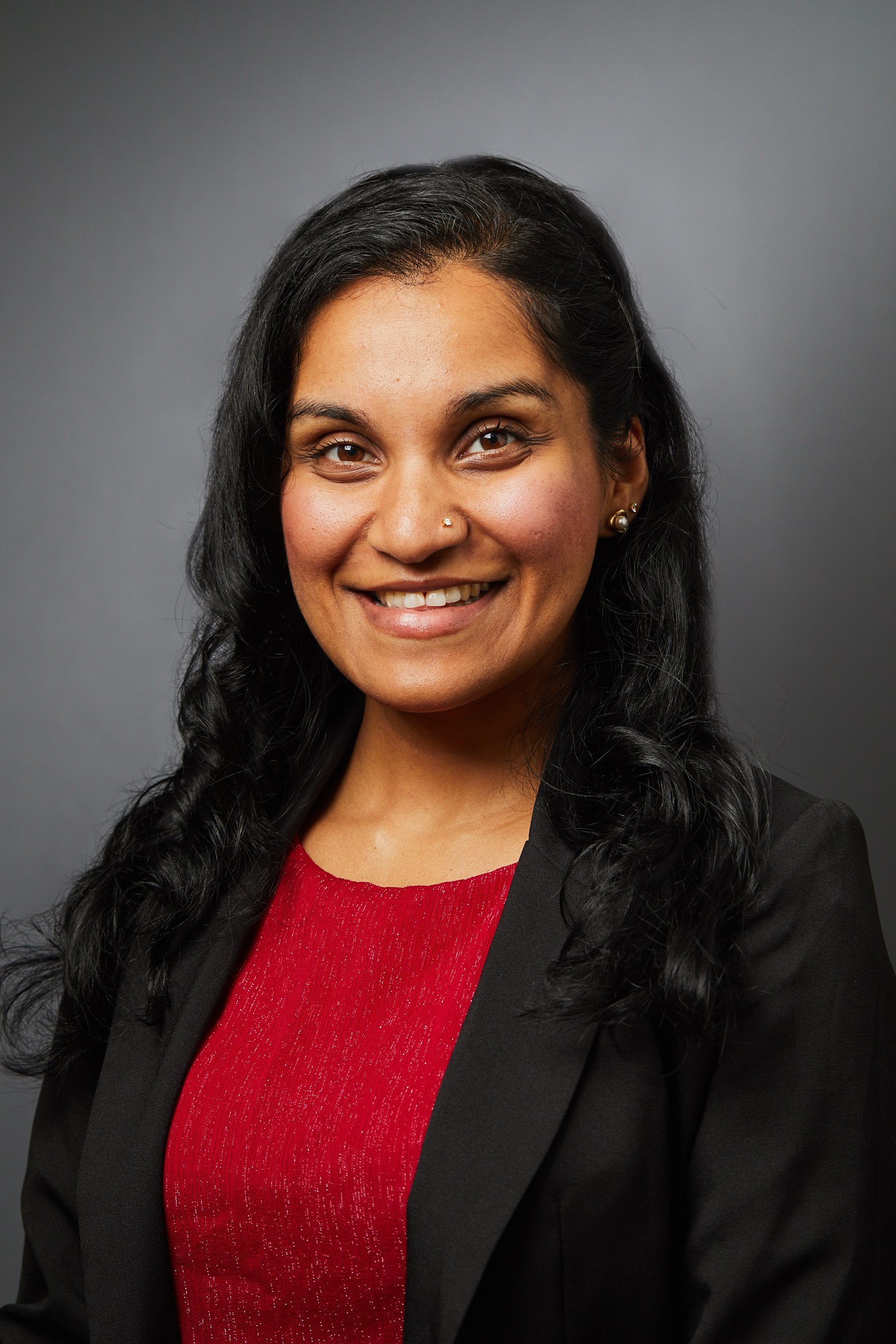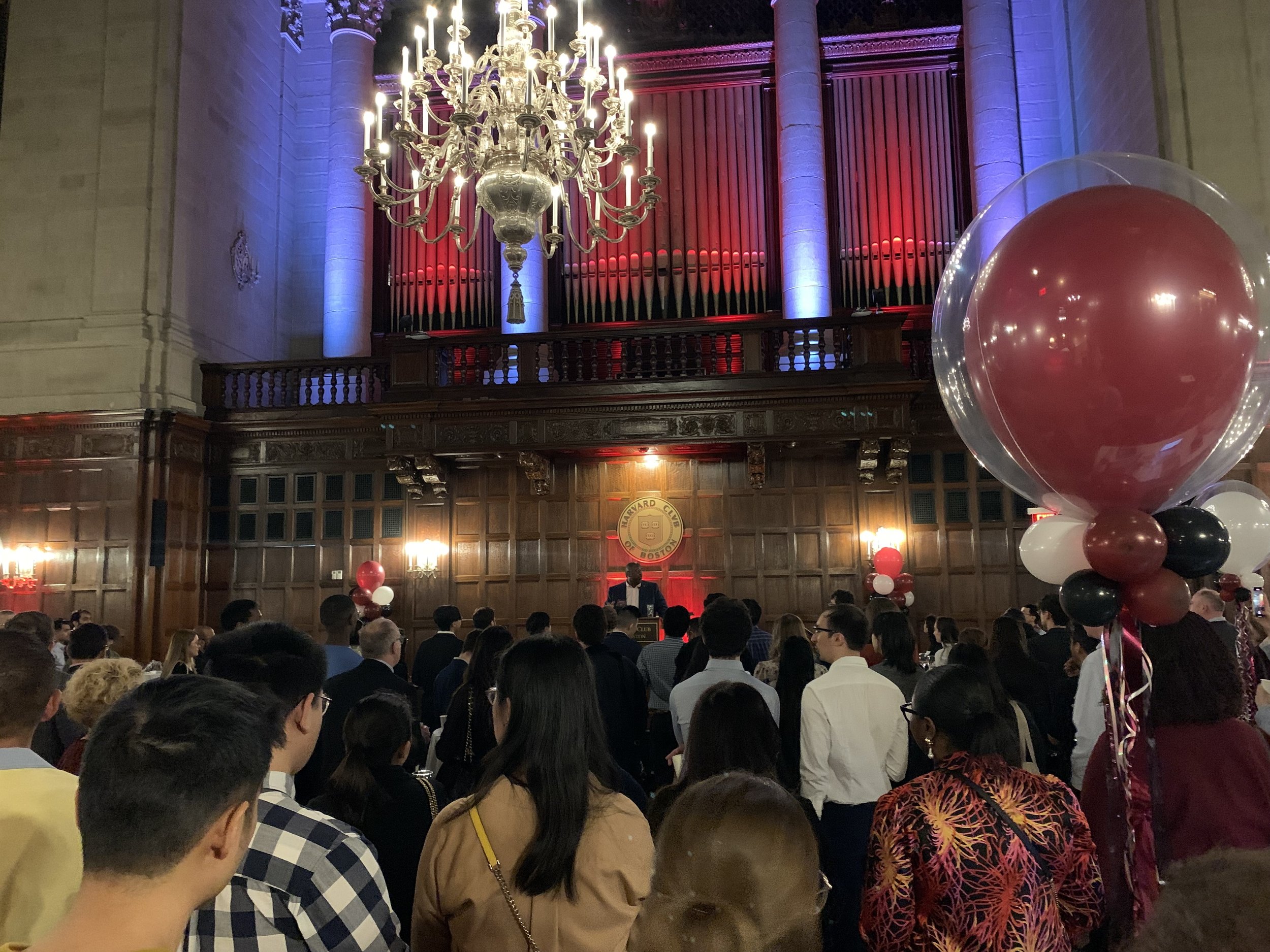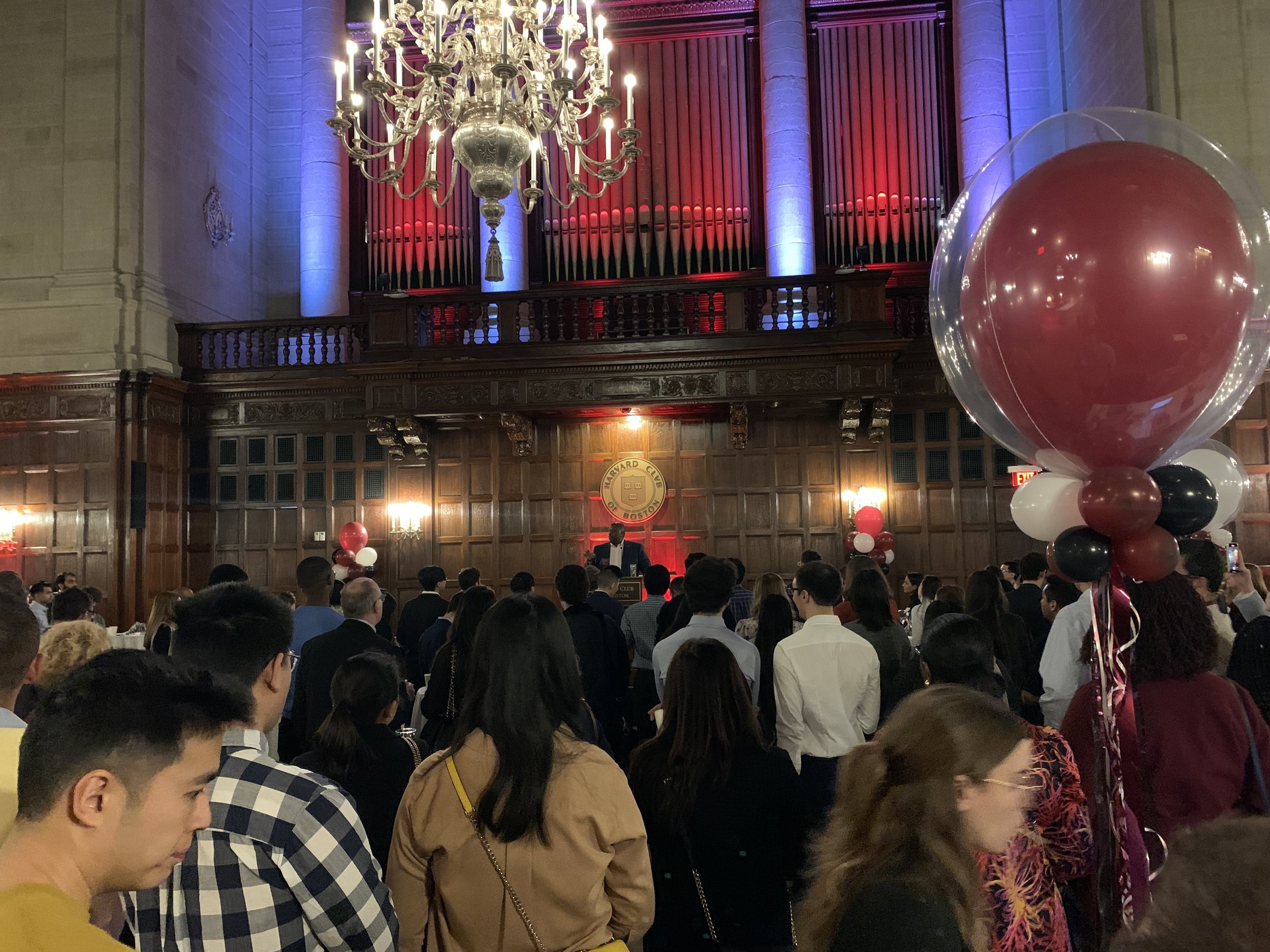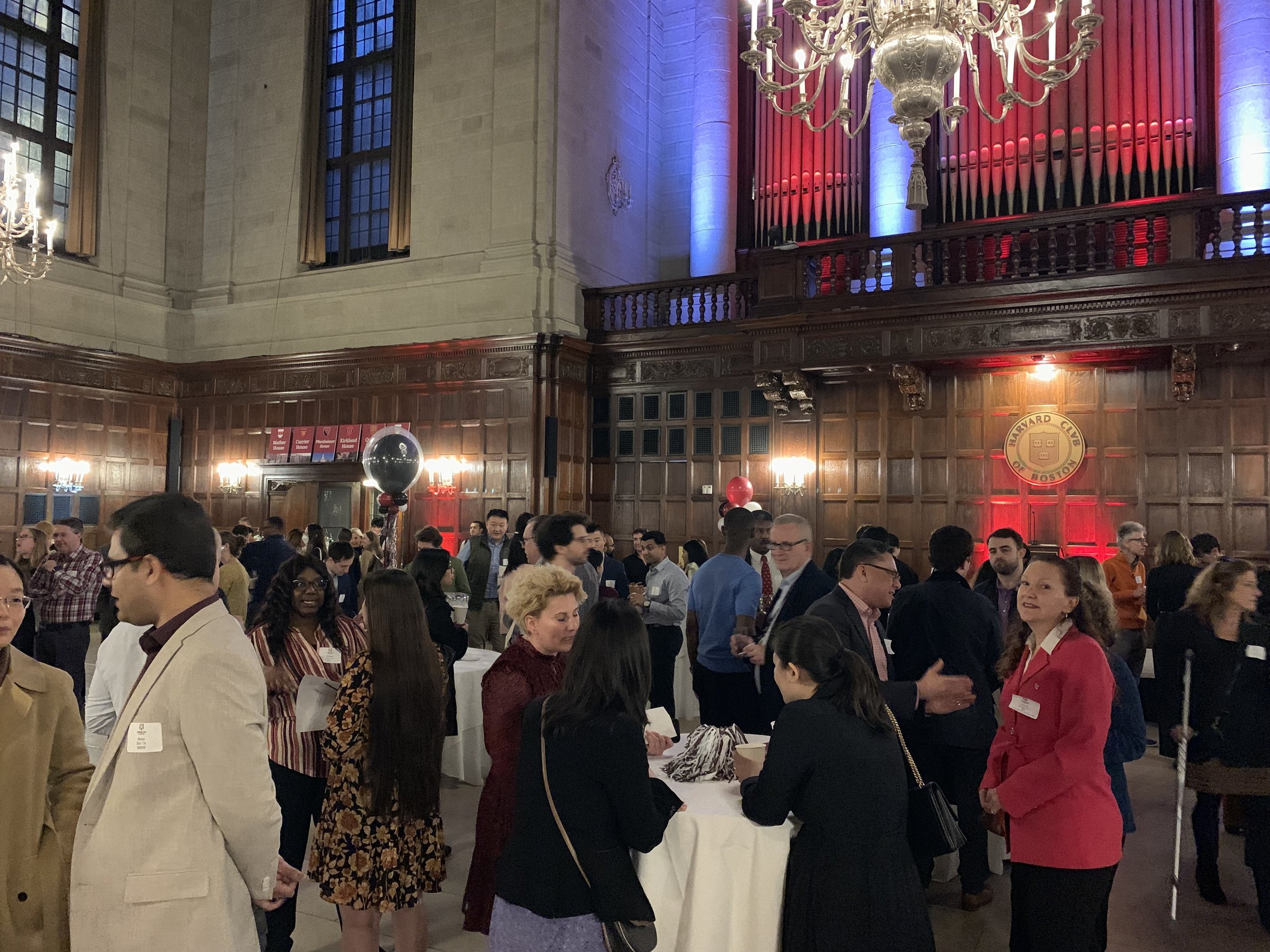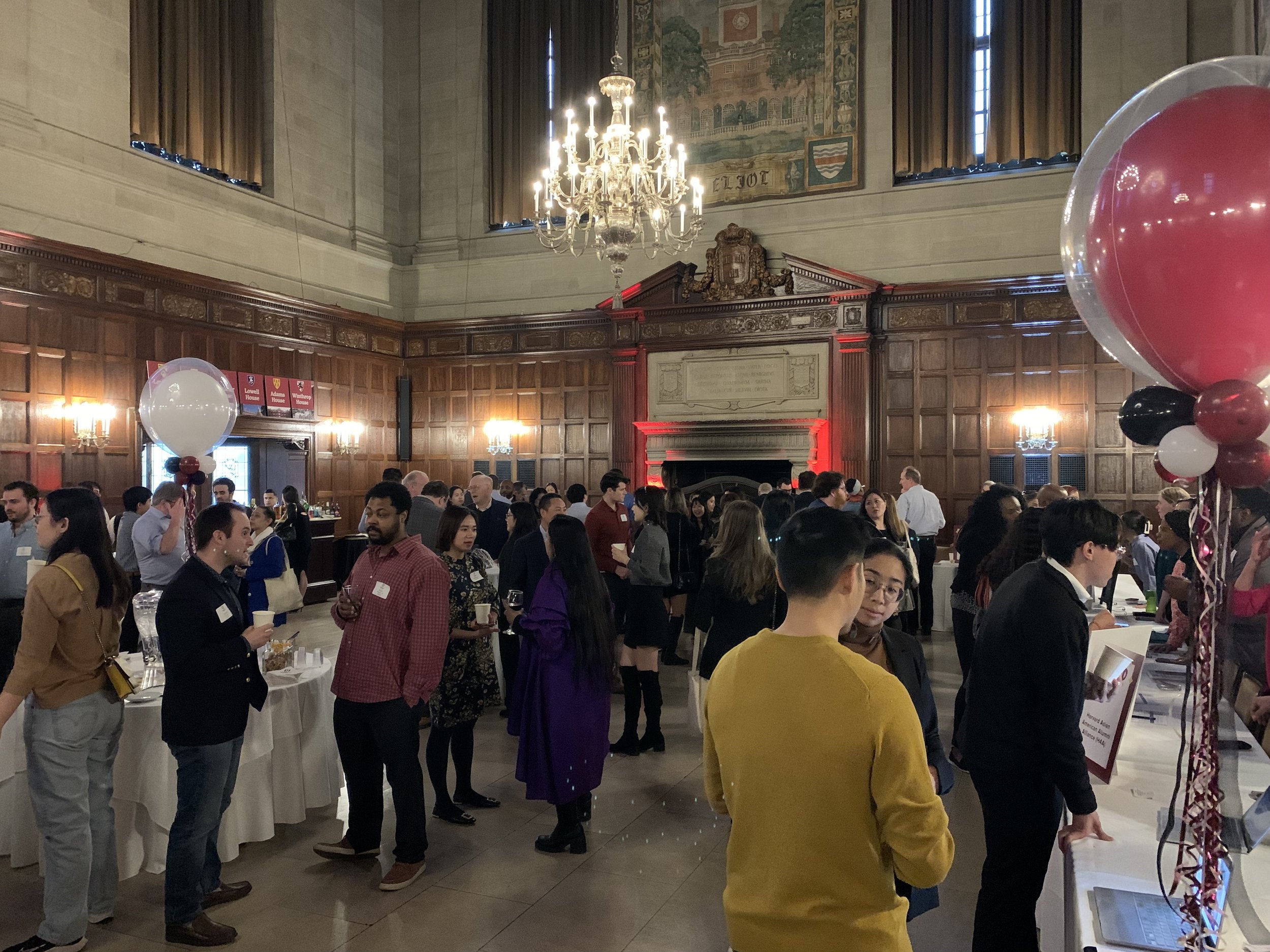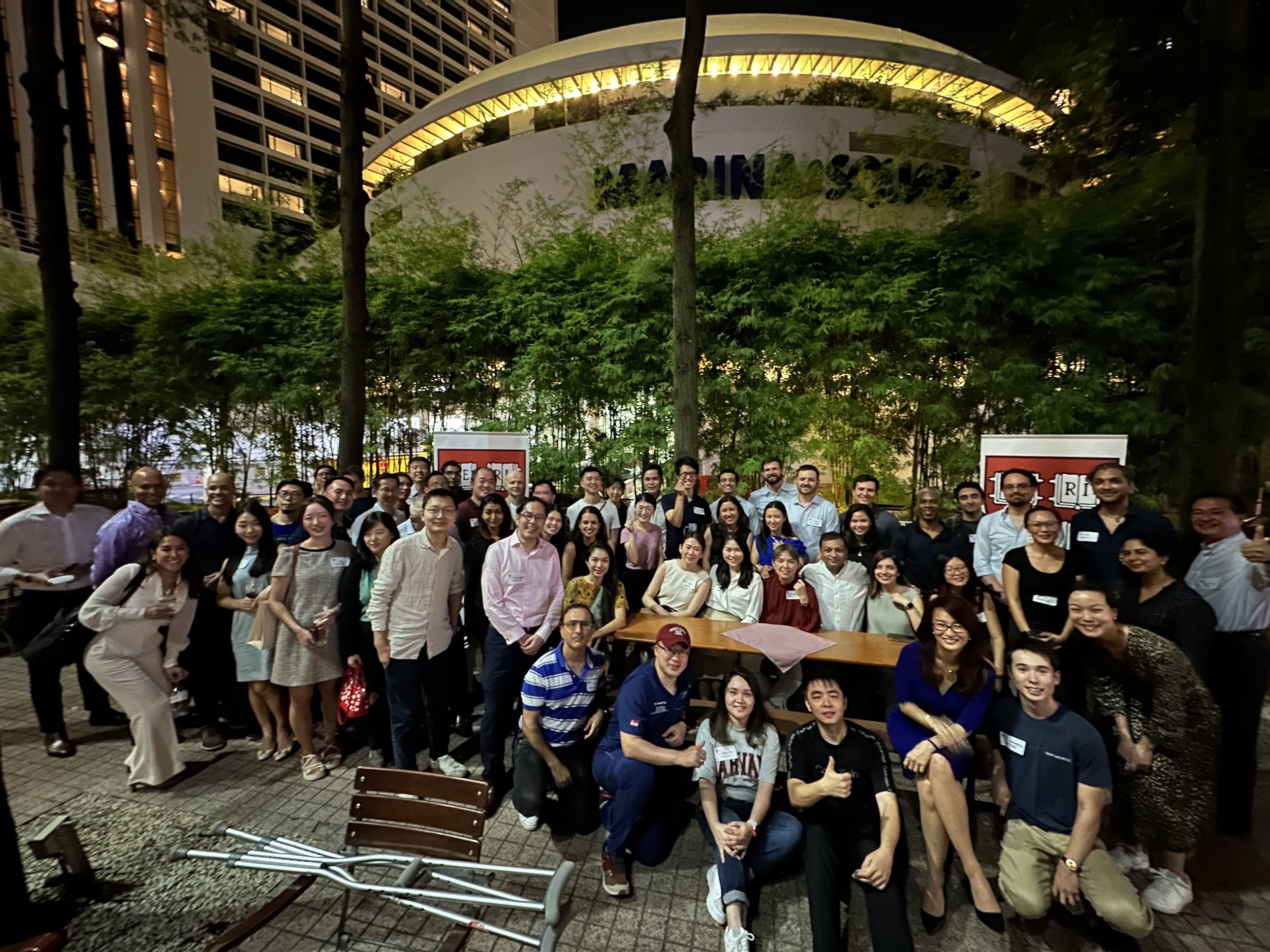Dr. Janani Raveendran, MD, MEd is a primary care physician and clinician educator in graduate and undergraduate medical education. She is passionate about training the next generation of physicians, as well as empowering underserved patient populations to advocate for their health. Her research interests center on medical education, and specifically on novel teaching models for outpatient medicine. Dr. Raveendran earned her MD with a Scholarly Concentration in Health Policy from the George Washington University School of Medicine and Health Sciences and then graduated from the Yale Internal Medicine Primary Care Residency Program with a Clinician Educator Distinction. She has been awarded for her excellence in primary care and is a member of the Alpha Omega Alpha Honor Medical Society. She is a member of the American College of Physicians and the Society of General Internal Medicine, serving as an associate editor for SGIM Forum. Before pursuing her medical career, Dr. Raveendran taught high school science with Teach For America and received her MEd from the University of Nevada, Las Vegas.
Reimagining Schools for Democracy: A Conversation with Linda Nathan
By Gustavo Rojas Ayala, co-director Harvard Alumni for Education LATAM
On Thursday, June 5th, Harvard Alumni for Education LATAM hosted an inspiring conversation with educator, author, and activist Linda Nathan. The webinar focused on her most recent book, Designing Democratic Schools and Learning Environments, which I had the honor of co-editing. Our exchange served as a powerful invitation to rethink schools as living spaces for democracy.
Linda opened by unpacking what democratic education truly means. It’s not a checklist of strategies—it’s about building living communities where agency, voice, and collective responsibility can thrive. In simple terms: schools where democracy is learned by living it.
She then shared the book’s guiding framework, which centers on four core pillars:
An open flow of ideas and choices,
High-quality, inclusive, and accessible education for all,
Active engagement in service of the common good,
Deep collaboration with families and communities.
This is not a prescriptive model, but an ethical compass to design learning environments that respond to diverse realities—especially those marked by historic inequality.
We then explored the essential role of teachers. Linda was unequivocal: there can be no democratic schools without democratic conditions for educators. Professional autonomy, participation in decision-making, collaborative cultures, and long-term stability are all foundational so that teachers can act as true agents of change.
A key part of the conversation focused on designing democratic spaces in contexts shaped by inequity. Linda pushed us to challenge the assumption that marginalized communities need order and control. Quite the opposite: these are the spaces where freedom, play, agency, and opportunity are most essential.
We also discussed how school leaders can intentionally cultivate democratic culture—not only in classrooms, but across governance, family partnerships, and everyday decision-making. Democratic culture is not declared—it’s built, embodied, and nurtured. From the school’s systems and policies to its daily routines and values, everything matters.
Finally, Linda shared what gives her hope: her students. Seeing them take on leadership roles and drive change across schools and communities is what sustains her—especially in a time when democratic principles are under threat globally. Their courage, creativity, and commitment to justice are a reminder that another future is possible.
You can watch the webinar’s recording here: Webinar with Dr. Linda Nathan! | Harvard Alumni for Education - Latin America and Caribbean
Sun & Ssukgat: The Korean Art of Self-Care, Wellness & Longevity
In a world that often prioritizes hustle over health, a recent talk co-hosted by the Harvard Club of Victoria in Australia, and the Harvard Alumni for Education SIG, offered a refreshing perspective on self-care, wellness, and longevity.
Michelle Jungmin Bang is a Harvard Business School graduate, eco-entrepreneur, award winning author, and debut author of Sun & Ssukgat: The Korean Art of Self-Care, Wellness & Longevity. Drawing from her personal journey and extensive research, this engaging session explored how intentional self-care practices can lead to healthier, longer lives.
If you missed the live event, where Justin Fung, the President of the Harvard Club of Victoria interviewed Michelle, here’s why you should catch the recording.
Why this talk matters
In this talk, Michelle openly shares her health challenges and healing journey, as she rediscovered her Korean heritage and embraced timeless practices for longevity. As an eco-entrepreneur and CEO managing global teams across time zones, Michelle faced severe burnout. This experience led her to explore traditional Korean self-care methods like temple food, bathhouse rituals, and Jeong - the deep connection between people and places, to recover her physical and emotional wellbeing.
She also shared her journey of writing Sun & Ssukgat: The Korean Art of Self-Care, Wellness & Longevity. As someone who found herself in pain due to constantly sacrificing her wellbeing for work, she embarked on a mission to empower anyone stuck in the unhealth whirlwind of modern life to transform our wellbeing into simple, practical things we do every single day.
Watch the Replay
The replay of Michelle’s inspiring talk is available for a limited time only - one month. So, be sure to watch it before it expires. Make sure you take away key points to inspire your wellness journey.
Link to replay: https://us02web.zoom.us/rec/share/Lu5z4s9hXQLGAFXiTTG5m7-x1d5gxnd9zTfmouQ4INmCTSY5N_iyn4Xhz32soaHb.3UkMGMvgy4XJ6MI2
Passcode: DQ3!LC11
Link to Michelle’s book: https://www.amazon.com/dp/0063341522.
Link to Michelle’s IG: https://www.instagram.com/michelle.jungmin.bang/reel/DEUknWPRwmZ/
Collective Leadership for Systemic Change: Insights from webinar with Radha Ruparell
Collective Leadership for Systemic Change: Insights from webinar with Radha Ruparell
By Gustavo Rojas Ayala, Co-Director Harvard Alumni for Education LATAM
The latest Harvard Alumni for Education LATAM webinar with Radha Ruparell reminded us all that collective leadership can be an exceptional avenue to build systemic change. Stemming from her experiences as Head of the Global Leadership Accelerator at Teach For All and author of Brave Now, Radha shared with our audience valuable insights. Such as the idea that powerful conversations can drive powerful action. Below, there are a few relevant takeaways from our conversation.
Defining Collective Leadership
Collective leadership transcends collaboration or teamwork. It involves aligning diverse stakeholders around a shared vision, accepting that sustainable systemic change requires more than isolated individual efforts. Successful collective leadership intentionally integrates varied perspectives, experiences, and voices to co-create impactful solutions.
Fundamentally, collective leadership focuses on trust-building, creating and holding environments where students, teachers, families, policymakers, and community members share responsibility and ownership of desired outcomes.
The Importance of Unlearning
Leadership today involves both learning and unlearning. While acquiring new knowledge and implementing new strategies is essential, systemic transformation also requires releasing outdated mindsets, assumptions, and behaviors.
Radha emphasized the importance of asking what must we let go of to genuinely perceive the world—and each other—in new ways, and interrupt the transmission of views that might be harmful. Unlearning is no easy business since it challenges existing mental models. But it expands possibilities for innovation and transformation.
Healing as a Leadership Act
Another profound reflection was the necessity of acknowledging collective histories and prioritizing healing. Effective leadership incorporates humility, recognizing historical wounds within communities and systems.
Collective leadership means fostering inclusive spaces where individuals feel seen, heard, and valued. Empathy, love, and healing—both individually and collectively—are foundational for meaningful change.
Embracing Tension with Love
Systemic change is inherently complex and often accompanied by tension. Rather than avoiding discomfort or conflicts, collective leadership invites us to navigate these tensions with love and compassion.
Radha invited us to see tension as a space for growth and deeper connection, not merely a problem needing quick resolution.
Four Mindset Shifts for Transformative Change
Finally, Radha outlined four critical mindset shifts essential for leading systemic change effectively:
Students as Leaders: Recognize young people as capable agents of positive community transformation.
Teachers as Learners: Understand that educators are continually growing and evolving alongside their students.
Systemic Thinking: Address root causes of issues, appreciating interconnectedness and complexity rather than just treating symptoms.
Community Power: Trust that communities possess the power to create solutions, ensuring genuine transformation when those directly affected lead initiatives.
Radha’s messages underscore that today’s educational and global challenges need more than the mere sum of single individuals or organizations. Collective leadership is about mobilizing ecosystems, in which diverse communities, educators, students, and relevant stakeholders align to a shared purpose. Creating hopes for the future is possible when we embrace a leadership that is inclusive, healing, and purpose-driven.
You can watch the recording of the webinar here: https://www.youtube.com/watch?v=Ri34JSm-Z0M
Q&A with Dr. Erin O’Connor, Founder of Nested Institute
Dr. Erin O’Connor is a Professor, the director of New York University's Early Childhood Education program, and founder of Nested Institute. She holds a Doctorate in Human Development and Psychology from the Harvard Graduate School of Education. Dr. O'Connor’s research focuses on relationship-building interventions that enhance language and social development in pre-kindergarten children from low-income backgrounds. Her work, published in leading journals and funded by the Spencer Foundation and the Institute for Education Sciences, drives meaningful change. She also co-hosts the podcast "Parenting Understood," translating research into actionable insights for caregivers. LinkedIn: https://www.linkedin.com/in/erin-o-connor-a7742978/ Instagram: https://www.instagram.com/nested.institute/?hl=en Email: eoc2@nyu.edu
Harvard Alumni for Education: Erin, congratulations on launching Nested Institute! Can you tell us what inspired you to start this new venture?
Dr. Erin O’Connor: Thank you! The idea for Nested really grew out of my research and teaching in early childhood education. Over the years, I’ve seen firsthand how critical family dynamics are in shaping children’s development, particularly in language, emotional regulation, and social growth. But I also came to realize that families don’t operate in a vacuum. They are deeply impacted by systems—policies, workplaces, healthcare, and schools—that are often fragmented and outdated. I started Nested to address these gaps and advocate for comprehensive, research-based solutions that support families as whole systems.
Harvard Alumni for Education: You have a strong academic background as a professor and researcher. How does Nested build on your work?
Dr. Erin O’Connor: My academic work has always focused on relationship-building interventions, particularly in early childhood settings. At Nested, we’re expanding that lens to consider families as interconnected systems. For example, if a child is struggling, we know that supporting their caregiver’s mental health or providing access to affordable childcare can make a world of difference. The research approach at Nested is rigorous and data-driven, just like in academia, but with an applied focus. We want to ensure that our findings translate into real-world policies and supports that families need.
Harvard Alumni for Education: Many of the issues Nested focuses on—affordable childcare, perinatal mental health, eldercare—are deeply pressing. How do you prioritize where to start?
Dr. Erin O’Connor: It’s certainly a challenge because these issues are interconnected, and families often experience multiple stressors simultaneously. We start by listening—to families, communities, and frontline providers. Our research helps us identify the most urgent needs, and we prioritize initiatives where we can make the greatest impact. For example, the mental health of caregivers, both during the perinatal period and beyond, has been a key focus. We know that when caregivers thrive, their families do, too. At the same time, we’re also addressing broader systemic challenges, like advocating for paid parental leave and workplace policies that promote family well-being.
Harvard Alumni for Education: How did your time at Harvard prepare you for this new chapter?
Dr. Erin O’Connor: Harvard was pivotal in shaping the way I think about education, research, and systems change. The interdisciplinary nature of the Harvard community taught me to look beyond silos—to consider how education intersects with policy, health, and family well-being. I also learned the importance of grounding big ideas in evidence. Harvard fostered in me a commitment to rigorous, data-driven work, but also to asking questions that challenge the status quo. That’s a mindset I carry into Nested Institute every day.
Harvard Alumni for Education: What advice would you give to other Harvard alumni looking to address systemic challenges or start their own initiatives?
Dr. Erin O’Connor: Start by listening deeply to the communities you want to serve. Real change happens when you build relationships, collaborate across disciplines, and stay rooted in the lived experiences of people most affected by the issues you’re tackling. I also encourage alumni to embrace the power of partnerships. At Nested, we work closely with families, businesses, and policymakers because we know that no one entity can solve these challenges alone. Finally, I’d say: be bold. Don’t be afraid to ask hard questions or imagine a future that looks very different from the present.
Harvard Alumni for Education: How can the Harvard alumni community get involved with Nested Institute’s mission?
Dr. Erin O’Connor: We would love to connect with alumni who share our passion for transforming family-focused systems and policies. There are so many ways to get involved—whether that’s through funding research, volunteering expertise, or amplifying our advocacy efforts. For those working in policy, education, or corporate leadership, there’s an opportunity to partner with us in building more family-centered practices and workplaces. I also invite alumni to tune into our podcast, Parenting Understood, where we discuss evidence-based strategies for families. Together, we can create a future where every family member thrives.
Harvard Alumni for Education: Finally, what keeps you hopeful as you take on such big challenges?
Dr. Erin O’Connor: I’m constantly inspired by the resilience and creativity of families. Even in the face of immense challenges, families are finding ways to adapt and support one another. I’m also hopeful because of the growing recognition that we need systemic change. Conversations around childcare, mental health, and paid leave are gaining momentum, and I believe that with collective action, we can drive meaningful progress. At Nested, we see ourselves as part of that broader movement, and that’s incredibly energizing.
Harvard Alumni for Education: Thank you, Erin, for sharing your journey and vision with us. We look forward to seeing the impact of Nested Institute!
Dr. Erin O’Connor: Thank you—and to the alumni community for supporting this important work!
Let’s Change the World: A Conversation with Emiliana Vegas
Let’s Change the World: A Conversation with Emiliana Vegas
Video: https://www.youtube.com/watch?v=YnFPN43eKNY
Event hosted by HAED Latin America, Patricia Vázquez del Mercado, Erik Ramírez-Ruiz, y Gustavo Rojas, Co-Directors.
In a dynamic, thought-provoking event, the Harvard Alumni for Education (HAED) Latin American Chapter welcomed Emiliana Vegas, author of Let’s Change the World and Professor of Practice at the Harvard Graduate School of Education (HGSE). Erik Ramírez Co-director of HAED LATAM, guided this conversation, with Gustavo Rojas leading insightful questions from participants spanning across Latin America. Emiliana’s story, filled with resilience, passion, and practical wisdom, left us all inspired to create meaningful change in education and international development.
A Path from Caracas to Cambridge
Emiliana’s journey wasn’t a linear one. Growing up in Caracas, Venezuela, during the 70s and 80s, she was unaware of global organizations like the World Bank or the Inter-American Development Bank (IDB). It wasn’t until she attended Duke University for her master’s studies that she realized her skills in data analysis and policy research could be applied to international development.
“I never planned for this career, but when I saw how research could be applied to real-world policy challenges, I knew I had found my calling,” she shared. Her journey took her through prestigious organizations such as the World Bank, IDB, and Brookings before returning to Harvard.
The Landscape of International Development
Emiliana demystified the world of International Development Organizations (IDOs) by classifying them into five key categories:
1. Global Funders - Institutions like the World Bank and IDB that provide loans and grants.
2. Private Philanthropies - Foundations like Gates and Jacobs that are reshaping development funding.
3. Conveners - Organizations such as the United Nations that set global agendas and foster collaboration.
4. Advisers - Consulting firms that provide technical expertise and policy recommendations.
5. Implementers - Field-based organizations like Save the Children and UNICEF that execute programs on the ground.
“I spent much of my career with global funders because they provide access to high-level policymakers and the resources to implement large-scale solutions,” she explained. But she was also candid about the challenges of navigating inefficiencies within these organizations, offering advice on building networks and fostering resilience.
Making a Difference: Key Projects in Latin America
Two notable projects stood out from Emiliana’s reflections. The first was her work on Chile’s education reforms, initiated under President Michelle Bachelet’s administration. Her team provided critical technical assistance that shaped policies, including the creation of a new Superintendency of Education.
“Seeing our recommendations become part of Chile’s education quality reforms was incredibly rewarding,” she recalled.
The second project took Emiliana deep into the Brazilian Amazon, where children in remote regions travel for hours or even days to attend school. Her team secured $151 million in funding to expand distance learning programs and renovate schools, ensuring access to quality education.
Balancing Career and Family: Navigating Challenges as a Latina Woman
As a Latina balancing traditional family expectations and a demanding career, Emiliana shared her personal challenges and triumphs. Initially, she believed academia would offer her the flexibility to combine research with family life, but her passion for applied fieldwork ultimately drew her into international organizations.
“I wanted both a family and a career, and I’ve had to find ways to make that work,” she reflected. Her honesty resonated deeply with participants, many of whom face similar challenges.
Guidance for the Next Generation
Emiliana offered valuable advice for aspiring professionals interested in making a difference in international development:
1. Develop Strong Analytical Skills: Learn how to interpret data and create actionable recommendations.
2. Hone Communication Skills: Convey complex ideas in accessible ways to different audiences.
3. Master Project Management: Effectively manage time, resources, and teams to achieve impact.
“Rigor with kindness,” Emiliana emphasized, is a key principle she lives by and instills in her students at HGSE.
Why She Wrote “Let’s Change the World” Book
The idea for her book came from a chance meeting with a young professional over coffee. He was seeking advice on navigating international organizations, and Emiliana realized her experiences could benefit others.
“I wanted to share what I’ve learned about how to succeed in these organizations while navigating challenges like bureaucracy and inefficiency,” she said. The book is a blend of career advice, anecdotes, and lessons learned from over 20 years in the field.
The Future of Education and Sustainability
As the event wrapped up, Emiliana reflected on the growing intersection of education and sustainability. She highlighted the dual role of education in teaching students to protect the planet and making school infrastructures greener.
But she acknowledged tensions within global education priorities, particularly between focusing on foundational literacy and numeracy and pursuing holistic education models. “Both are critical,” she noted, “but we must strike the right balance to ensure long-term development.”
A Call to Action
Emiliana’s message was clear: Change is possible when driven by committed individuals with the right guidance and networks. Her story reminded us that impact isn’t immediate, but with perseverance, it can be transformative. For those ready to take the next step, her book *Let’s Change the World* offers a roadmap to making a difference.
We left the session motivated and determined to contribute to global change, inspired by Emiliana’s example.
Let’s Change the World, book: https://www.emilianavegas.com/
About Emiliana Vega: https://www.gse.harvard.edu/directory/faculty/emiliana-vegas
Alumni Power: A celebration of teamwork with the Medical Indemnity Protection Society (MIPS)
By Dr Pamela J. Ferrada, Director of Partnerships, Harvard Alumni for Education
The Harvard Alumni community has always been a wonderful source of camaraderie and collaboration for me. Since joining my local Harvard Clubs in Australia and the Harvard Alumni for Education (HAEd) Special Interest Group (SIG), I've been incredibly fortunate to meet outstanding professionals from different disciplines and locations around the world.
Recently, I had the opportunity to represent the Medical Indemnity Protection Society (MIPS) and the Harvard Alumni for Education at the 28th Australia and New Zealand Prevocational Medical Forum in Darwin, Australia, where I shared innovative approaches in medical training. To polish my presentations, I reached out to fellow alumni from the Harvard Medical School for their peer-review. Embracing the spirit of our global community, four colleagues kindly offered their support.
Dr David Ampong DNP, APRN, PMHNP-BC from Anchorage, Alaska, USA generously provided valuable feedback to strengthen the narrative of my delivery.
Dr Ashish Chaudhry MRCGP, MRCP(UK), PG Dip, FHEA, Cert’22 (Harvard) from Manchester, UK helpfully shared surveys and connected me with fellow medical educators involved in death certification to better understand the educational needs of British family physicians.
At the same time, Dr Camila Marques, PhD from Curitiba, Brazil, went above and beyond by creating this fantastic video to share her experience with case-based collaborative learning (CBCL) approaches in physiology teaching.
The collaborative spirit extended even further. Dr Manasi Murthy Mittinty MD, PhD (Twitter, Facebook) from Flinders University in Adelaide, South Australia, shared her experience with the Flipped Classroom model and offered candid advice to colleagues about incorporating it into their teaching.
My presentations were well received. Dr Patrick Fergal McSharry FRACGP, from Sligo Ireland – Family Doctor and graduate of the U.T.C. Executive MBA Program - commented on “Learning how to Learn in Medicine – Teaching and Learning in Prevocational Training”. He felt that this presentation really brought home to him the need for the international sharing of best practices in medical education, not only at the pre vocational level but at vocational (Post Graduate) and indeed higher levels of training in Family Medicine/General Practice.
Dr McSharry also shared his thoughts on the presentation titled “An innovative death certification program for prevocational trainees grounded on adult learning principles “ He reiterated his feeling that “while it was important for pre vocational trainees to learn how to complete a death certificate, it would be even more important in these days of coronial inquests in primary care that family physicians in the Royal Australian College of General Practitioners (RACGP) or the Australian College of Rural and Remote Medicine (ACRRM) training programs, have access to courses such as this”.
I’m truly grateful for the support of the Harvard Alumni community and my team at MIPS. My colleagues’ willingness to go the extra mile is a testament of the Harvard Alumni community’s strength. It's more than just a collection of names and profiles; it's a vibrant community of individuals willing to support, share and celebrate each other.
David, Camila, Ashish and Manasi; Thank You. You exemplify the values of service and leadership within the Harvard Alumni Network. This experience shows that by working together we can significantly increase the positive impact of our network on communities worldwide.
Guest Blog: How Learning and Transformation Are Infused into the Life of this Lawyer-turned-Art Ambassador
By Evelisa Natasha Genova
Avalon Ashley Bellos is a dynamic gallerist, artist broker, ambassador, and all-around powerhouse who uses her expertise to uplift women and transform the art world. Raised in Dallas, Texas, in an environment of bold design and high expectations, Avalon was shaped by both creativity and ambition. After starting her career in law and politics, she ultimately found her calling in the art world, where learning and transformation have been key to her journey. Some of the key ways they have been a part of her story include:
Having Resilience and adaptability, especially as a woman of color navigating elite spaces, Avalon learned to assert her presence with confidence and grace.
Shifting purpose which became clear when she transitioned from law to the art world, where she really found an ability to advocate for causes and creators she believes in.
Empowerment - that advocate heart never left her, and Avalon’s work now focuses on creating opportunities for women across industries to thrive, with artists at the center to inspire and uplift.
Full episode can be heard on the podcast Little Transformations Everywhere on Apple and Spotify
"My dad wanted me to understand that I had an essential power as a woman, and that I was capable of anything."
Avalon was raised by parents with personality. Her father was an attorney and envisioned a particular path for Avalon. Pushing her toward a career in law meant that she could break barriers in a male-dominated field. “My dad wanted me to understand that I had an essential power as a woman and that I was capable of anything,” Avalon reflects. Following his lead, she attended Georgetown Law School and worked with organizations like the National Women’s Political Caucus and Emily’s List. But something was missing. “I felt restricted, even in those righteous spaces,” she admits.
"I realized I didn’t want to just change laws—I wanted to change hearts."
As a woman of color in predominantly white, elite environments, Avalon felt she had to constantly navigate her presence and assert her value - which, in fact, created an impeccable can-do mindset. “SMU was an elite private university, primarily very wealthy and very white. I was often the only person of color in my group of friends,” she says. Avalon was shaped to be socially vigilant and powerful. “It helped me learn how to move in different areas of life, almost like a chameleon, and to be comfortable in rooms where people of my color were rarely seen.”
"Navigating elite spaces as a woman of color taught me resilience and the power of self-assurance."
With her ability to navigate these spaces, Avalon however couldn’t ignore a growing feeling that she was on the wrong path. And when she started painting in college, she met a friend who lived life with unapologetic authenticity. “Legislation is one way to change the world, but [as I saw my friend] I realized I could legislate the soul through art,” Avalon says. She sold her first collection, Highly Stylized Nudes Expressing Neo Feminism, and felt a spark she hadn’t found in law. “I realized then that it was another way of legislation—legislation of the soul,”.
"The human condition is enriched by art—take that away, and you’re left with a robot.
With the passing of her father, Avalon then decided to make a bold move. She left her career in Washington, D.C., and returned to Texas, where she found work as an art dealer on a luxury cruise line. It was a world away from the political sphere, but it felt right. “It was a way to see the world,” she says. Onboard, she combined her love for art and luxury, helping people discover the beauty in art and, by extension, in themselves. “The human condition is enriched by art—take that away, and you’re left with a robot,” she notes.
"I learned that art can be a form of activism—it’s a way to communicate ideas that words can’t capture."
Of course, the elephant in the room is the leap from the world of law to the art world. And Avalon certainly had her share of deep doubt, questioning her worth and direction, particularly as a woman of color in spaces where she often felt out of place. “Yet even the strongest people have moments where they don’t believe in themselves,” she says. What helped her through was resilience and the support of strong women around her. “Surrounding yourself with the right people makes all the difference when you’re going through tough times,” she adds.
"You have to excavate daily—everything you need is already within you."
Now, Avalon is channeling her experiences into something even bigger. She’s using her platform in the art world to uplift others, especially women. “My work now - The Empowered Feminine - is about leveraging power for something positive, for women and art,” she explains. This isn’t just about selling luxury; it’s about creating opportunities for people to experience the transformative power of art and to see themselves in new, empowering ways.
"Every challenge I faced made me stronger, and now I use that strength to help others find their own power."
“Being an entrepreneur as a woman is powerful and exciting—it’s about seeing your own magic reflected back at you,” The attention we can give to our instinct and our true joy is a chance to give our knowledge, skills, and training a north star. You then don’t just improve your own life—you uplift the world around you. Whether selling a masterpiece or mentoring a future leader, Avalon’s impact is clear: she’s helping others see their potential and encouraging them, to continue the legacy that her father gave to her. And that is a legacy that is timeless, truly embodying power from the heart and soul - one beautiful piece at a time.
Guest Blog: Diversity and Multiculturalism
In this guest post, HAEd’s USA/Canada Regional Director, C.K. Noble, Ph.D., shares her perspective on diversity and multiculturalism.
In the process of writing my current scientific work, it became clear that the focus on traditional economic views in regard to the subject of international careers and academia, shifted to a transformative debate on diversity and multiculturalism. Between the US and Canada, emerged fundamental differences on these topics. Diversity and multiculturalism are both relevant to the aims of educational institutions and to the role of federal government. Both concepts have their distinction in their historical developments and actionable approaches in keeping individuals and society connected. There is a difference between diversity and multiculturalism and most people use these terms without knowing their meanings which are founded in the development of the historical relationship between the U.S. and Canada.
Diversity focuses on the awareness of intellectual, language and cultural issues which have an impact on learning. The aim of diversity activities is to promote a safe learning environment with institutions where individuals can grow and maximize their potential. Diversity is mainly a management tool used by institutional leadership which aims to ensure neutrality with a mission of civic education and learning ecosystems to prevent institutional polarization. Consequently an individual choice is strongly encouraged by institutional leadership to gain and share knowledge.
Multiculturalism is a government tool of a generational assimilation of two social and cultural heritages. It is governed through bilingualism and in North America, multiculturalism relates to the history of Canada which dates from the Royal Commission on Bilingualism and Biculturalism in the years 1963-69.
This process does not exist in the context of the US where other languages can be translated to English with technology. It presents assumptions of meanings in communication which can be relatively superseded through diversity actions and educational programs, but it does not require the immersion into another social and cultural heritage. We can witness the dynamics of immersion into a social and culture heritage through bilingualism by observing the speeches presented by members in the Canadian parliament.
Bilingualism is more than fluency of two languages. Through its common use the advantages offer deeper understanding of customs and mores in society. These are views about life, standards, relationships, unique knowledge and the use of certain practices throughout generations. Bilingualism requires a commitment by the country’s citizens and by the governance of the educational system.
One of the major outcomes of multiculturalism is creating a synergy of trust in teamwork and cooperation among its citizens. Trust is a crucial value for teamwork where bilingualism exists. There is an awareness to work together with long-term strategic plans for their equal, inclusive and peaceful democratic governance together in one country. One of the biggest challenges for a country governed by multiculturalism is the recent development and challenges of immigration movements since those individuals have not assimilated early life learning of both languages and experienced the social and cultural heritage of the country.
As consequence institutional diversity is easier to understand by immigrants instead of multiculturalism but does not reduce the importance of it which needs to be addressed seriously. Multiculturalism as a governance tool maintains a common and coherent society with more than one social and cultural heritages governing together with respect for the democracy that has been established by its founders.
HAEd SIG Meetup 2024
by Dr. Crystal Rose, M.D., Ph.D. HAEd Boston Co-Director
On June 1st, 2024, Harvard Alumni for Education (HAEd) hosted a memorable 'Meet and Greet' circle at Emerson Hall 101 as a part of the Harvard Reunion. Our Meet Up was generously sponsored by the Harvard Club of Boston. The event, bustling with energy and enthusiasm, was a testament to the power of connection and community among Harvard alumni.






Attendees arrived to a warm welcome from the HAEd Boston Chapter leaders, including Dr. Crystal Rose, HAEd Boston Co-Director; Hannah Shin, HAEd Boston Co-Director; Michelle Barmazel, HAEd Boston Engagement Coordinator and HAEd Boston Partner Liaison; and Monica Reichard, HAEd Boston Engagement Coordinator. The room buzzed with conversation as alumni from all 13 schools mingled, shared stories, and formed new connections. Notable guests were many and ranged from Dr. David Malan of CS50 fame to Artist, Educator, to TEDster, Berkeley-Stanford-Harvard Alum Felicia Kamriani, to Lavada Berger of Transcend Education to Dr. Kim Marshall of The Marshall Memo, who graciously offered opportunities for attendees to engage further. However, this gives an impression of the scope and breadth of the event. Our chapter also created activity zones for the attendees based on a series of engaging questions they could explore together or individually, which provided additional context for the event.
A highlight of the afternoon was the presentation of a special certificate to Dr. Elizabeth Micci from the Harvard Club of Boston, a testament to the strong partnership between HAEd and the Club. Dr. Micci's address to the group underscored the pivotal role of collaboration and community in driving educational excellence. The club's generous provision of refreshments added a delightful touch to the event, and a special thanks goes to Bex Steinberg for coordinating the snacks and to Kevin Steinberg for capturing the moments as the event photographer. In addition, HCB hosted a swag and info table, which included information about HCB membership and fun giveaways that included HCB branded frisbees, cozies, lanyards, and sunglasses!
As the afternoon progressed, the room was filled with laughter, animated discussions, and an unmistakable sense of shared purpose. Alumni eagerly discussed ways to get more involved, with many stepping forward to express interest in leadership roles within HAEd. The excitement reached a peak during the raffle, and one lucky attendee won a personalized HAEd journal.
As the largest chapter, HAEd Boston is committed to creating more meaningful events for its members. This Meet and Greet was not just an event; it was the catalyst for new friendships, collaborations, and a renewed dedication to educational advancement. We are thrilled at the prospect of strengthening our leadership team and continuing to host events that bring value and inspiration to our members, and we invite you to be a part of this exciting journey.
In this historic time of profound change, the importance of coming together to focus on the future of education cannot be overstated. We deeply appreciate everyone who attended and made this event truly special. Your presence and contributions are what make our community vibrant and dedicated to making a difference in education. We eagerly anticipate welcoming more alumni at our future events, as we continue to build a community that is united in our collective mission for educational excellence.
Stay tuned for more opportunities to connect, share, and grow with Harvard Alumni for Education. Here's to many more events that inspire and unite us in our collective mission for educational excellence.
Education as a Living Organism: Insights from a Creative HAEd Event
By Shana DeVlieger
On April 19, New York City-based HAEd members crouched around a generous supply of crayons, pastels, construction paper, markers, and paints. For a rare moment in the midst of our busy lives, we got to take our work shoes off, set our laptops aside, and sit in teeny-tiny chairs at a local contemporary arts preschool. While this setting was not entirely foreign to us (as those working in education spaces), our purpose that night certainly was. We gathered not to guide toddlers, satisfy administrators, or present research, but instead, to co-create a space of play, possibility, and dreams for the future of education.
We began the evening with informal introductions to each other and to our art supplies (when was the last time you gripped a crayon or held a paintbrush?). Our conversation drifted from hometowns, to partners, subway lines, to career aspirations, and finally, to the world we inherited and the one we want to leave behind. Soon, we felt comfortable enough to laugh at our scribbles and even enjoy the discomfort of starting a directionless line. Then, we began our activity: rose-bud-thorn (RBT). RBT offers an intuitive frame for reflections around the positive (rose), the possible (bud), and the problematic (thorn)). Using our art supplies, we represented the roses, buds, and thorns in each of our educational journeys as students, educators, observers, and/or in other professional or caregiving capacities. As we created, we discussed our roses (the beauty we’ve observed and had the joy of participating in), our buds (what we hope to nurture and see bloom), and thorns (sources of pain, that if removed, might allow us to hold closer the beauty and possibility of the roses and buds).
One poignant example of a rose came from Anne, who shared a previously-untold anecdote from her elementary school days about how her teacher created a secret hand signal to help her participate in class in a way that felt psychologically safe. On the opposite end of the spectrum, Abby shared her representation of thorns. She used unforgiving lines, rigid angles, and cut-outs to represent the constraints of ‘boxes’ and missing opportunities in education. We discussed how her experiences and observations led to her current doctoral research that aims to promote equitable access to high-quality STEM education in NYC public schools. As for buds, I obviously chose Anne and Abby’s dedication to promoting educational equity through their careers; they give me hope.
If you saw the effortless grace with which Anne handles colored pencils, you could probably guess her profession. She is a talented (and exceedingly humble) architect. While she could easily spend her time working on megamansions or skyscrapers, she channels her prowess into designing liberatory educational spaces. As she noted,
"School is the most important civic space that children interact with. Every child deserves a school where they feel welcomed, comfortable, and inspired to learn."
She shared an example of a recent project: a redesign of a middle school in a resource-deprived area of Maryland that accomplished both energy efficiency and school-community wellbeing. A once windowless structure nicknamed ‘the prison on the hill,’ she and her team revamped it to include an inviting courtyard and classrooms with ample natural light. While some of our work in education (including my own) focalizes the psychosocial and cultural contours of education spaces, Anne offered us a unique perspective. Physical spaces are inextricably linked to the inter- and intrapersonal dynamics we study. Taking it all into consideration, we dreamt of new cross-sector collaborations to address pervasive disparities across NYC’s education landscape.
As we continued chatting, we noted points of RBT convergence and divergence, as well as what likely contributed to these differences (like our identities and social positioning). Then, we discussed how we might create a larger piece to represent our collective experiences, hopes for the future, and potential roles in shaping it. We decided to use pieces of our individual representations to make one collective rose, bud, and thorn.
Collectively, we found beauty in loving action. In the center of the rose, we placed a spiral with the word “show” from Abby’s rose, in the palm of the hand from Anne’s rose that represents her teacher’s signal. Anchoring the base of the rose, we placed a symbol of liberation from my drawing.
Our thorns included isolated spikes, as well as one cross-cutting thorn to represent the larger interlocking systems of oppression (that restrict the flow of nutrients from the soil to the rest of the stem and the buds of promise). To deepen the metaphor, we also considered the essential elements of soil, air, and sun that nurture growth and flourishing.
Finally, as we capped our markers and recycled our construction paper clippings, we reflected on what a profound respite this was. Pausing to process, collectively dream, and create a physical representation brought us hope. Art played a large role in that. When words or logic inhibit us, the freedom to scribble, crumple, cut, and paste, can grant us access to our unrestricted selves. Using the metaphor of a living being to frame our reflections also inspired a different kind of thinking. Rather than something static, we could talk about education as a living organism. Our field, just as a living organism, requires nutrients and regular tending in order to flourish. This motivates us all to find ways to take action in all of the corners of the field that we occupy. Closing the preschool door, we expressed gratitude to each other and for our rich and growing HAEd community. Since hosting this event, I have only become more excited by the potential of all we can and will (re)generate together.
Building Democratic Education: My Conversation with Elisa Guerra
By Gustavo Rojas Ayala
I recently had the opportunity to join my very good friend and colleague, educator Elisa Guerra on her podcast, diving deep into the world of democratic education. We based our conversation on the principles from the book I recently published as co-editor, “Designing Democratic Schools and Learning Environments: A Global Perspective.” This discussion wasn’t just theoretical; it was about real-world applications that can revitalize learning for students and educators alike, and even breathe new life into Democracy itself.
The book offers a rich tapestry of 38 chapters detailing experiences from 14 different countries, serving as a comprehensive guide to the challenges and innovations in creating democratic educational spaces. In our chat, we dissected this framework with practical examples and probing questions. Here’s a brief rundown:
1. Open Flow of Ideas: Democratic schools thrive on the free exchange of thoughts.
2. Quality and Equity: High standards and fairness are non-negotiable in democratic education.
3. Common Good: Democratic education is a collaborative mission requiring consensus and active participation.
4. Community Collaboration: Addressing shared challenges is crucial for democratic education projects.
Discussing the intersection of democracy and education, we stressed the importance of nuanced, context-sensitive approaches when reflecting and acting. Building democratic education is far from a straightforward and black-or-white endeavor; there’s no manual or one-size-fits-all solution. Schools often face significant challenges in adopting more democratic methods, particularly in managing disagreements and fostering collective decision-making.
These challenges are not exclusive to educational institutions; they mirror broader societal needs for diversity and inclusive dialogue. This is why activating a conversation about how schools can embrace democracy as a means of transformation and improvement is so crucial nowadays. When educational initiatives inspired by democratic values navigate the complexities and messiness involved, they become proof that democracy is not something given to societies by someone, but a journey of continuous creation and recreation that needs everyone’s involvement.
Of course, building democratic schools and learning spaces is also a great path for achievement and realization. During the podcast, we explored how democratic schools enhance students’ sense of belonging and responsibility toward their academic and personal growth. We also touched on the benefits for teachers, including a more collaborative work environment that boosts professional satisfaction. Such an environment ensures that the democratization process is authentic and self-driven, rather than imposed.
To catch the full conversation, originally in Spanish, you can click right here: Elisa Guerra’s Podcast on Democratic Education.
HAEd at the Alumni Opportunity Fair - For The Second Year
On April 25, 2024, the Alumni Opportunity Fair was held at GCC E1-3 from 11:30 am to 4:00 pm, providing a vibrant environment for soon-to-be HGSE grads. This event is designed to help these students have the opportunity to connect, network, and explore various opportunities even before they graduate. Harvard Alumni for Education (HAEd) was delighted to participate for the second year in a row, dedicated to welcoming and supporting the latest generation of Harvard alumni.
Our preparation for the Alumni Opportunity Fair began well in advance, with our team arriving as early as 10:30 am to set up our table and ensure we were ready to welcome attendees. We anticipated a high volume of visitors and came prepared with a range of materials, including printed resources, QR codes, and HAEd giveaways, all designed to engage attendees and promote our free Special Interest Group (SIG).
Throughout the event, our team shared the benefits of joining HAEd. Our two most significant selling points? We emphasized our commitment to accessibility through our free membership and our global reach with chapters across the United States and worldwide. We also stressed that our global network provides the unique opportunity to connect with others regardless of where they move post-graduation.
The Alumni Opportunity Fair was not just a networking event but a vibrant and interactive experience. There were catering tables with a popcorn bar and cupcakes - lending a celebratory air that encouraged attendees to mingle and connect. There were a lot of memorable features, like the HGSE step-and-repeat near the main entrance, along with a Polaroid camera and props; these provided fun and interactive elements, adding to the lively atmosphere and allowing a platform for attendees to network and capture memories.
Overall, HAEd's participation in the Alumni Opportunity Fair was a success! Over 150 enthusiastic new graduates signed up. Beyond that, we shared our mission and values and strengthened the ties within the Harvard alumni community.
We look forward to participating again next year and continuing our commitment to supporting Harvard alumni on their educational and professional journeys. Special thanks to HGSE organizers who invited us, Lisa Himmelman and Emily Williams; my fearless co-director of the Harvard/Boston Region, Hannah Shin; and our amazing ECs, Terence Tan Wei Ting and Dr. Bob Weinberg, for hosting the table and ensuring we had people there for the all-day affair! Super special thanks to our incredible Global Board, especially Nicole Erb and Dr. Jessi Hanson-Defusco, for your magnanimous support, vision, and leadership.
Prof. David J. Malan: Using AI as a Personal Tutor
In the Summer of 2023 and Fall of 2023, Prof. Malan and his team actively tested an AI-powered chatbot, implemented as a virtual rubber duck (aka. rubber-duck debugging), developed specifically for CS50. The CS50 Duck (aka. CS50.ai) was first deployed to approximately 70 summer students, then to 1,000 students online, and finally to approximately 500 on-campus students. Prof. Malan discussed the development of CS50.ai, detailing the challenges faced, solutions proposed, and results achieved, all toward realizing a long-held aspiration: a 1:1 teacher-to-student ratio.
It was a very successful HA Ed event; we had 140 registrations, including 25 former students of DR. Malan who now live in the Seattle area.
We also simulcasted the event to Singapore and Mexico-based HA Ed members. We also had participants join from Beijing, China.
The following is a recording of the event.
HAEd Guest Blog Series by Evelisa Genova: A conversation on pain, mindset, and the possibilities of positive change with Dr. Martina Ziegenbein
Sometimes, life brings you people who inspire you at just the right points in your life. Sharing the TedX stage with Martina has been one of the greatest blessings that I only continue to learn from with time. Our conversation proves this further, and I am so delighted to share it with you. In the face of adversity and unexpected life changes, Dr. Martina Ziegenbein, a clinical rheumatologist and fibromyalgia coach, shared with me her journey from losing her job to opening her own private practice. Not only is her story a testament to resilience, adaptability, and the power of a positive mindset, but she also offers insights for anyone navigating the uncertain waters of personal and professional transformation. And deep reassurance - that our thoughts can transform our outcomes.
You have to listen to Martina’s kindness, authenticity, and enthusiasm. The podcast links can be found here: Apple Podcast or Spotify. Please feel free to share this with anyone who needs to hear it!
At the very least, I had to share these Top 3 Insights from Dr. Martina Ziegenbein:
The Courage to Embrace New Beginnings:
Dr. Ziegenbein's venture into establishing her own practice was not a straightforward path. Initially reluctant due to the discomfort of starting anew, she was thrust into entrepreneurship by circumstances. Her story teaches us that embracing change, despite its challenges, can lead to fulfilling new opportunities and growth beyond our comfort zones.
Suggested Practice: Start a "Possibility Journal." Every day, jot down one new idea or opportunity you'd like to explore, no matter how big or small. This exercise encourages an open-minded approach to new beginnings, making the unfamiliar less daunting and more exciting.
The Power of Mindset in Overcoming Challenges:
Throughout her journey, Dr. Ziegenbein highlights the critical role of mindset in facing and overcoming challenges. By shifting her belief system and embracing her capabilities, she demonstrates that our thoughts and attitudes significantly influence our actions and outcomes. Her experience underscores the idea that with determination and a positive outlook, we can navigate the complexities of life and career transitions successfully.
Suggested Practice: Implement a daily affirmation or meditation practice focused on strength and adaptability. Spend a few minutes each morning affirming your ability to handle whatever comes your way. This practice helps cultivate a resilient mindset, empowering you to face challenges with confidence.
The Significance of Art and Connection:
Dr. Ziegenbein shares a profound connection with art, viewing it as a bridge to the divine and a source of healing and expression. Her narrative reminds us of the therapeutic power of art in our lives and practices, emphasizing its role in fostering a deeper connection with ourselves and others. This insight speaks to the importance of integrating our passions and interests into our work, enriching both our professional endeavors and personal well-being.
Suggested Practice: Notice each week the artful details in light - this could be noticing the beauty of created things, to actively engaging with art, through creation or appreciation. This could be attending a gallery, painting, writing, or even gardening. Artistic expression connects us to our inner selves and the broader human experience, fostering a sense of belonging and understanding.
Dr. Martina Ziegenbein's journey is so inspiring for anyone facing change or hardship. Her insights teach me the value of embracing new beginnings with courage, the transformative power of a positive mindset, and the profound impact of integrating our passions into our lives. “Anyone, who has the will, is capable of change” is truly the antidote for any cynicism - and a light of hope for anyone in their darkest hour.
Learn More about Dr. Martina Ziegenbein:
How The Brain Has Power Over Our Pain | Martina Ziegenbein | TEDxMountRubidoux
Global Networking Night 2024
Thank you to all HAEd leadership who helped co-host Global Networking Night in March, and thank you to all who attended. By all accounts it was a great success with many fruitful connections and conversations across the planet. You can see photos that we received below, and for photos from all GNN events, go here.
We look forward to seeing you next year!
HAEd Alumni and students meet up at CIES 2024 conference in Miami
Harvard Alumni for Education members meet with members and students at the 2024 Comparative International Education Society (CIES) 2024 Annual conference in Miami in mid-March. Harvard was well represented this year by our dynamic PhDs, professors, and master’s students! We meet up at Black Market. Dozens of us got to share our work and research. After years of COVID, everyone was so thrilled to meet in person.
This year’s CIES program was entitled, “The Power of Protest.” The power of protest in education is based on the public action. Novel research and programming that focuses on diversity, equity, and inclusion was at its core. Harvard alumni, faculty, and students presented on an array of issues, including literacy and numeracy education in Uganda; civil society partnerships to stop sexual abuse in schools in Liberia; and higher education in Georgia. Getting to share, learn, and laugh together was an incredible experience! We hope to see many more members next year!
Labyrinths of a Happy Career: Careers and Education by C.K. Noble, Ph.D.
Dr. Noble writes her thoughts on sustainable career ecosystems.
“Sustainable careers involve indicators such as employability, financial security, well-being, and productivity while the concept of a career ecosystem whereby involves various professionals who rely on each other. This is not about individual success only but about the success of the organizations and social systems.”
“What Comes Next: Reimagine Your Impact” Recap
On October 5th, Harvard Alumni in Education was thrilled to host a virtual event: “What Comes Next: Reimagine Your Impact.” In this TEDX-style event, we were joined by five education experts sharing how they reimagined their professional roles and tapped into their passion amid and after COVID.
Our speakers shared personal stories with some similar themes throughout. We heard about how identity was central to folks’ work, such as Cornelius Lee seeking to elevate Queer and Black winemakers and Peter Walblay seeking a new professional identity after leaving the classroom. We heard about values alignment—Alexis Stern talked about leaving school leadership to pursue leadership coaching after realizing it was much more aligned with her values. Dr. Sabeen Sheikh shared about a holistic view of wellness and seeking it while pursuing her doctoral degree as well as sharing it with students she served. Dr. Jennifer DeNeal spoke about pursuing purpose and the importance of finding community in her work.
We were thrilled to highlight five experts with varying perspectives who joined us for this rich conversation. Thank you to Mary Grech and Ashley Smallwood for organizing and hosting. We hope to see you at our next event!
Learn more about our speakers here:
You can watch the replay on YouTube below.
HAEd Singapore Event Recap
We had a great turnout for the first-ever joint meeting of the Harvard Alumni for Education Singapore and Seattle Chapters. Over 30 people registered, many overcoming both the Singapore heat and the scheduled Formula 1 race nearby to attend the event. Many thanks to Matt Ong and Titus Yong of HA Ed Singapore! for hosting the event!
Carlos Obando
Founder and Managing Member
Carlos@MITelco360.com




